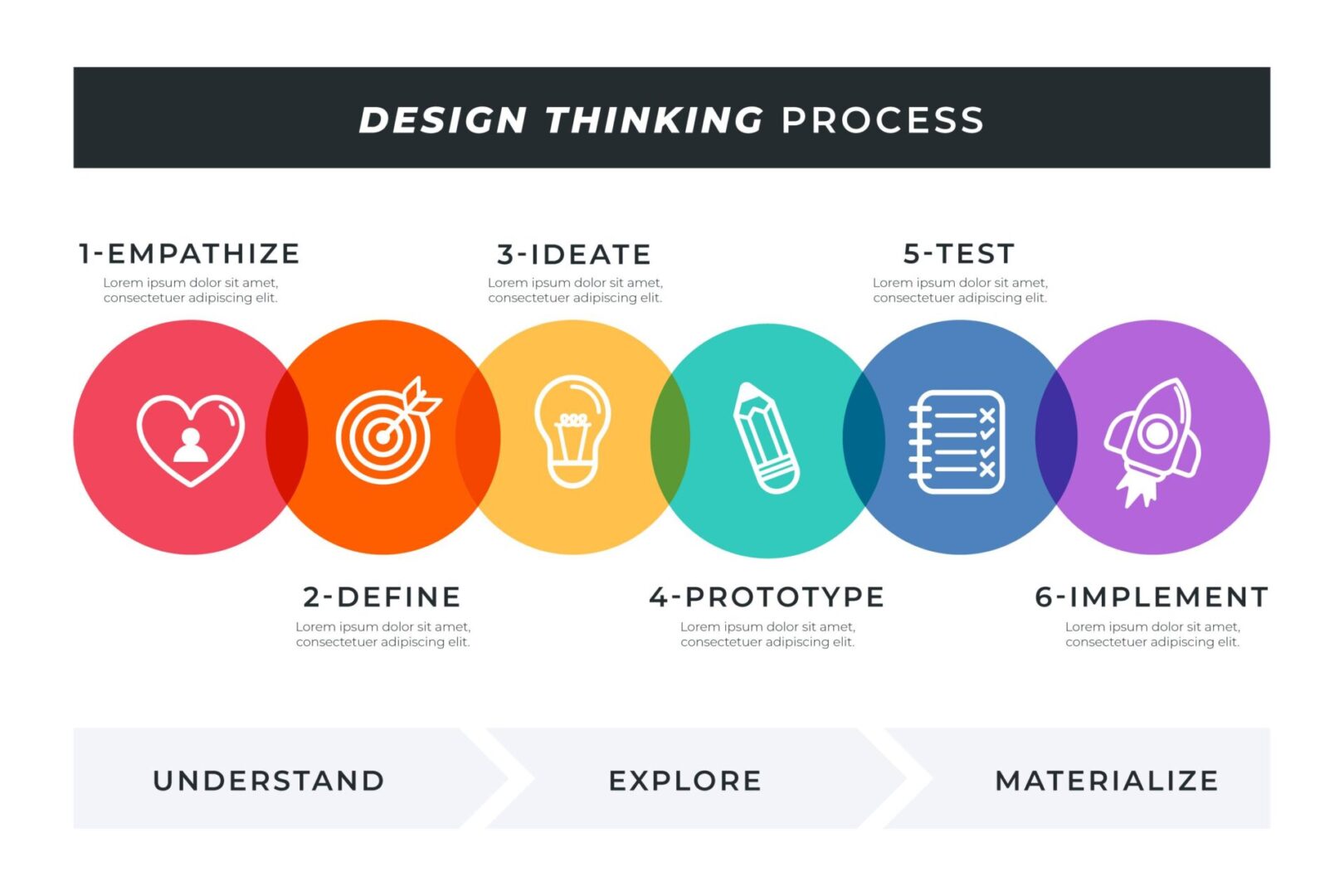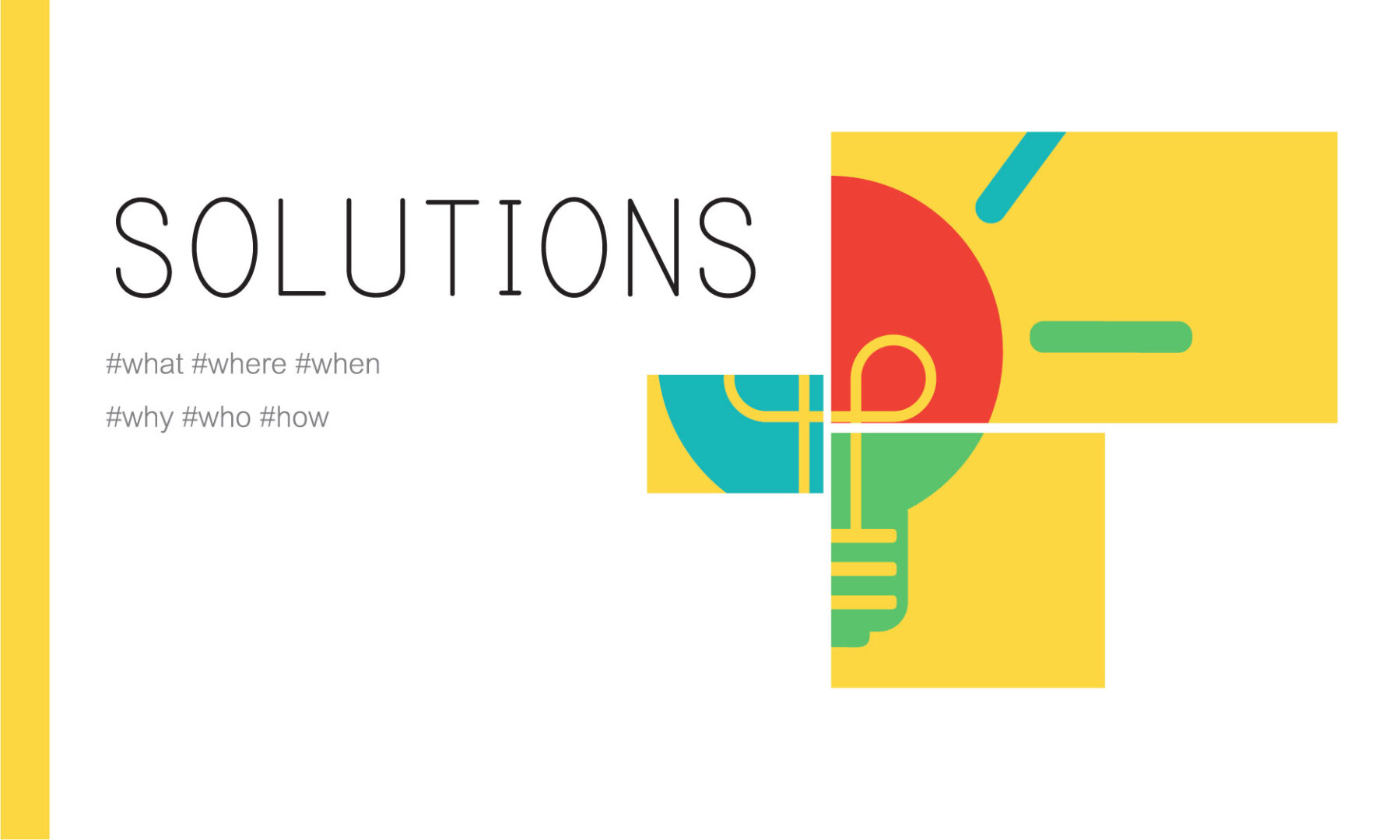What is Design Thinking
Design Thinking is an iterative problem-solving approach focused on understanding users, challenging assumptions, and redefining problems to create innovative solutions. It involves empathy, ideation, prototyping, and testing.
The Essence of Design Thinking
Embark on a journey of innovation as we delve into the intricate realm of Design Thinking—a transformative approach that transcends conventional problem-solving. Design Thinking is not just a process; it’s a mindset, a methodology that places human needs at the core, fostering creativity and empathy. In this comprehensive exploration, we unveil the process overview, delve into the importance, unravel the benefits, and unveil strategies that empower you to harness the full potential of Design Thinking.
Process Overview
Design Thinking is a human-centered approach that revolves around understanding the user, challenging assumptions, and redefining problems. It’s an iterative process, often visualized as a series of interconnected steps:
- Empathize
The journey begins by empathizing with the user. Through interviews, observations, and immersion in the user’s environment, designers gain deep insights into the needs, challenges, and aspirations of the end-users.
- Define
With empathy as a compass, designers define the core problems faced by users. This stage involves synthesizing observations, uncovering patterns, and framing the problem in a human-centric manner.
- Ideate
Ideation is a creative brainstorming phase where diverse ideas are generated to address the defined problems. It’s a liberating process that encourages out-of-the-box thinking and values quantity over quality initially.
- Prototype
Transforming ideas into tangible forms, prototyping involves creating low-fidelity representations of potential solutions. This hands-on approach allows designers to quickly test and iterate, refining concepts based on feedback.
- Test
The final stage involves testing prototypes with end-users to gather feedback. This feedback loop informs further iterations, ensuring that the final solution aligns seamlessly with user needs.

Importance
Human-Centric Solutions
At its core, Design Thinking places the human experience at the forefront. By empathizing with users, the resulting solutions are inherently more aligned with their needs and desires.
Innovation Catalyst
Design Thinking acts as a catalyst for innovation. It empowers teams to challenge assumptions, think creatively, and explore unconventional solutions, fostering a culture of continuous improvement.
Adaptability and Resilience
In a rapidly changing landscape, adaptability is key. Design Thinking equips organizations with the mindset and tools to navigate uncertainty, respond to feedback, and pivot when necessary.

Your Business Benefits
Enhanced Problem Solving
Design Thinking reframes problem-solving. By focusing on understanding the root causes and involving users in the process, it leads to more effective and sustainable solutions.
User Satisfaction Amplification
The user is not just a recipient; they are a collaborator in the Design Thinking process. This co-creation results in products and services that resonate more deeply with users, leading to increased satisfaction.
Cross-Functional Collaboration
Design Thinking breaks down silos. It encourages collaboration across diverse teams, bringing together individuals with varied expertise to collectively tackle complex challenges.
Your Business Strategies
Embrace Ambiguity
Design Thinking thrives in the realm of ambiguity. Encourage your team to embrace uncertainty, viewing it not as a roadblock but as an opportunity for creative exploration.
Cultivate Empathy
Empathy is the heartbeat of Design Thinking. Foster a culture where understanding and valuing the perspectives of end-users are ingrained in every stage of the process.
Iterative Mindset
Design Thinking is inherently iterative. Encourage a mindset where feedback, prototyping, and testing are not just steps but ongoing practices that drive continuous improvement.
Elevate Your Approach
Design Thinking is not just a methodology; it’s a mindset shift that transcends boundaries and fuels a culture of innovation. In the ever-evolving landscape, it’s not just about solving problems; it’s about crafting experiences that leave a lasting impact. Dive into the world of Design Thinking, where every challenge is an opportunity, and every solution is a masterpiece in the making.
Embark on a transformative journey with Design Thinking—a mindset shift that transcends conventional problem-solving and fuels a culture of innovation. In this exploration, we’ve delved into the intricate process, highlighted the profound importance, showcased tangible benefits, and outlined strategic approaches to maximize the potential of Design Thinking. Join us in the ever-evolving landscape where challenges become opportunities, and solutions are crafted with precision, empathy, and a relentless pursuit of excellence.

